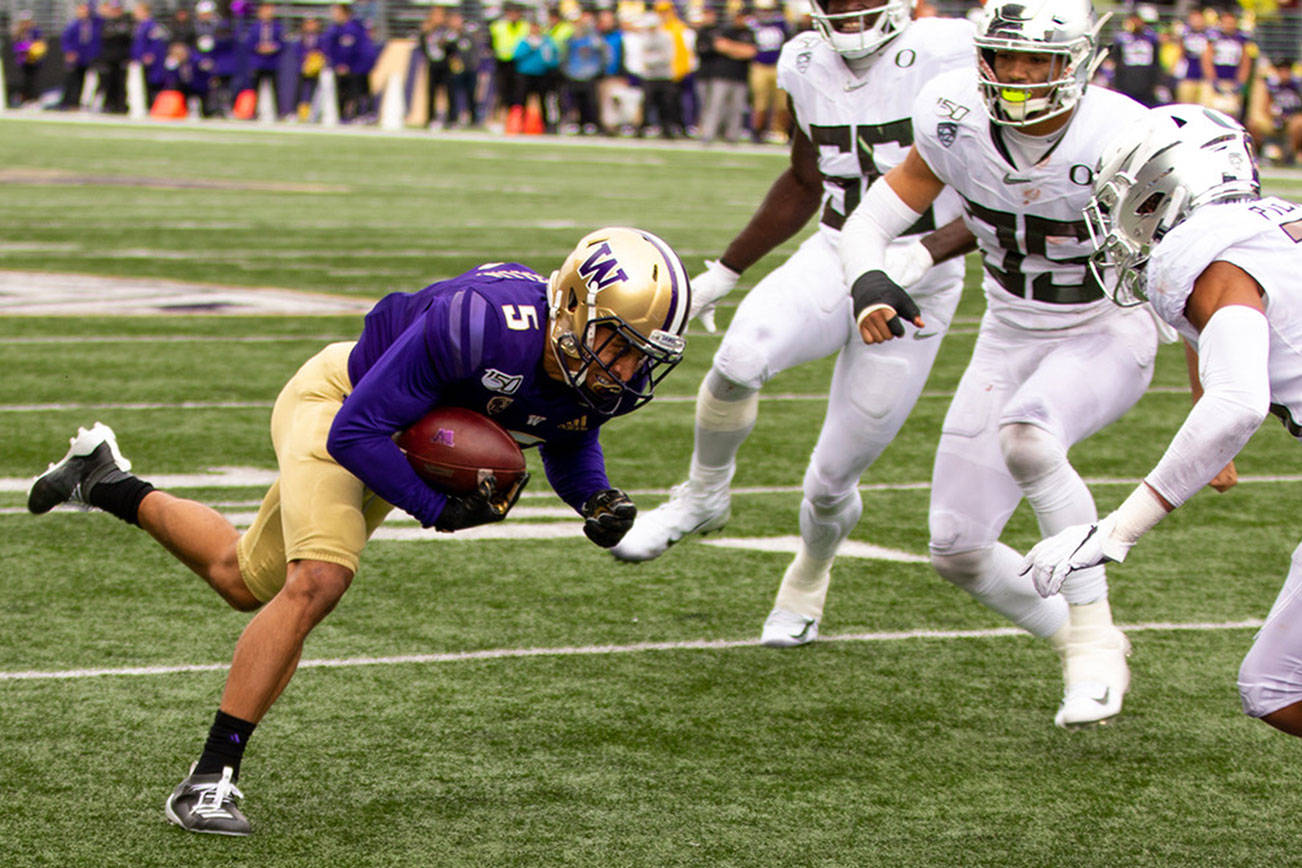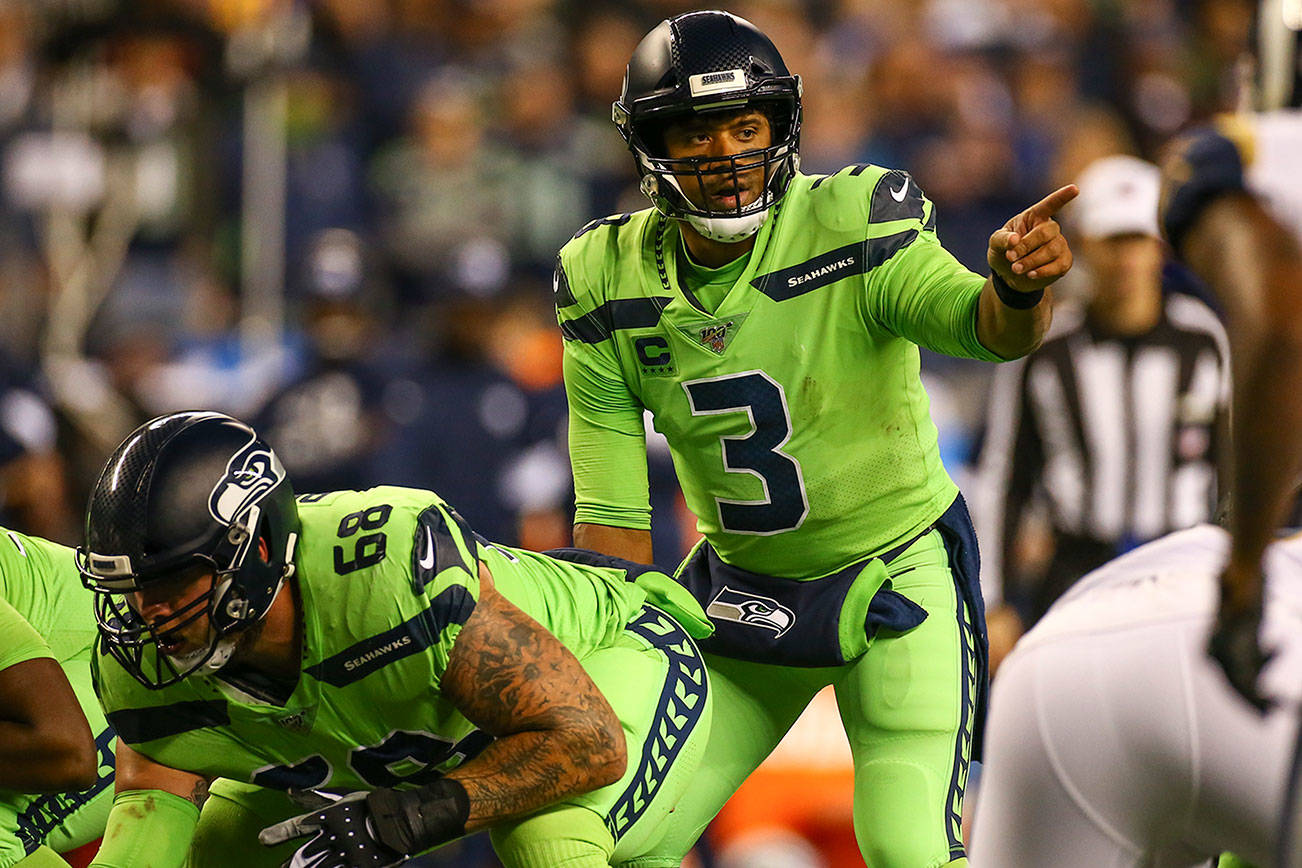If you’re looking for a nice quiet place to read a book or get work done next summer, might I suggest Safeco—errr—Yet To Be Offically Renamed T-Mobile Field. Because the Seattle Mariners are going to be putrid. Putrid by design. So there will be plenty of open seats and the unrecognizable faces on the field will provide little distraction.
The Mariners kicked their offseason fire sale into overdrive in the past few days. After trading away ace James Paxton and catcher Mike Zunino (and flipping setupman Alex Colome for Zuninio’s replacement, Omar Narvaez), things ratcheted up a whole ’nother level with the blockbuster deal sending All-Stars Robinson Canó, Edwin Diaz, and $20 million to the Mets for highly-rated prospects Jarred Kelenic and Justin Dunn, plus outfielder Jay Bruce and relievers Anthony Swarzak and Gerson Bautista. As much as it stings to lose a dynamic young star like Diaz, it’s really hard to not view the surface level of this deal as a win for the Mariners. Because of the volatility of the role, trading a closer when he’s at his peak value is always the right move (unless you’re a true World Series contender). In the past the Mariners have consistently screwed this up by not getting high prospects in return for guys like J. J. Putz, David Aardsma, and Tom Wilhelmsen when they were hot closers in go-nowhere M’s seasons. This time general manager Jerry Dipoto used Diaz to get two Top 100 propects and unload the tail end of Canó’s massive contract. The young players the M’s get back—outfielder Kelenic (the 6th pick in the 2018 MLB Draft and MLB.com #62 ranked prospect) and starting pitcher Dunn (#89)—instantly become top-three talents in the M’s lowly farm system (trailing only Justus Sheffield from the Paxton trade). Heck, the Mariners’ system was so bad entering the offseason that Bautista—essentially an afterthought throw-in reliever—now cracks the Mariners’ top-30 prospects, per MLB.com. Meanwhile, Bruce (while overpaid) could takeover the designated-hitter role next season assuming he’s not flipped again (which really can’t be assumed with Dipoto).
While Canó has been the rare big-contract player to not significantly decline, a good portion of Mariners fans had already turned on him after being suspended 80 games for taking a banned substance and considering the team played better without him for the first half of the 2018 season. It was the right time to move on even if the team had to ship $20 million to get it done. But Dipoto’s follow-up move (and rumored ones on the horizon) make the salary dump a tougher pill to swallow.
On Monday, the Mariners shipped All-Star shortstop Jean Segura and relievers James Pazos and Juan Nicasio for young shortstop J.P. Crawford and another overpaid older designated hitter in Carlos Santana. While the soon-to-be 24 Crawford is a toolsy former top prospect, he’s hit only .214 in the bigs. You know who’s a really good shortstop? Jean Segura, who happens to be only 28 and was on a very fair and affordable contract. Even if the Mariners aren’t looking to contend in two years, Segura should still be a very good player for the remainder of his four-year deal. So essentially the Mariners are taking a lotto ticket on a guy who we can only dream reaches Segura’s level, while giving up two big-league bullpen arms and taking on an old hitter without versatility. Word is that the front office viewed Segura as a clubhouse issue, but it still looks like a cost-cutting move where you’re trading for 25 cents on the dollar. It’s a signal the Mariners are committed to being intentionally awful even if it takes illogical measures.
Tanking—the practice of throwing away a few seasons by intentionally putting together losing teams in order to stockpile high draft picks to replenish organizational talent—has worked. The strategy built World Series winners for both the 2016 Chicago Cubs and 2017 Houston Astros. But both those franchises had long-term organizational plans to do so. As recently as last June, national sports writers were praising Dipoto for achieving his long-term plan to finally field a contender with the M’s built around guys like Paxton and Segura. Then everything—predictably—crashed and burned in the regression of the second half of the season. This rebuild wasn’t the plan. This is the panic audible because the plan failed miserably. It’s not that it’s not the right move to be sellers, but it’s hard to have faith in the rebuild when the guys pulling the strings are the same ones were the architects for the worst minor-league system in the bigs.
But worse than that, the Paxton, Canó, and Segura deals all have an unsettling undertone of cutting payroll at all costs. The trades so far this offseason have slashed the Mariners’ payroll by over $20 million for 2019, while cutting costs for future years even more substantially. And that’s operating under the tenuous notion that the Mariners won’t able to move any of the big contracts they’ve taken back in deals (Santana, Bruce, Swarzak). That’s not money that will be reinvested in good free agents, because, again, the goal is losing now. There have also been rumblings of the Mariners trying to unload Kyle Seager and Mike Leake, which would leave Felix Hernandez, Dee Gordon, and Wade LeBlanc as the only returning players making over $1 million. Worse yet, there have been rumors that the Mariners might trade 27-year-old All-Star outfielder Mitch Haniger. If the goal is to win in a few years, Haniger should be the anchor to build around, as he’ll still be at his athletic peak when the team hits the alleged contention window. Trading him would seem to indicate the Mariners don’t want to start having to pay him the big bucks when he’s due for arbitration after next season, which would be a slap in the fact to Mariners fans.
The Mariners are currently teetering on the tipping point where the moves made can be spun as a rebuilding process. But we’re a couple more salary dump moves (or pre-salary dump in Haniger’s case) away from this being an offseason designed primarily on maximizing the team’s revenue at the expense of the fans. It feels like the front office’s inability to put a winner on the field has shifted the Mariners into the realm of a venture-capital operation, the Bain Capital of baseball. It’s feeling less like one of our city’s teams (one that we’re now kicking $135 million in taxpayer funds to for stadium upkeep) and more like a failing business that can be ruthlessly stripped for its parts to turn the highest profit (TV deals and MLB revenue sharing will more than make up for the sagging attendance) with emotionless precision.
The team on the field might be atrocious for the next few years, but at least the owners’ bottom lines will be winning! That’s what Mariners fans really care about, right?








